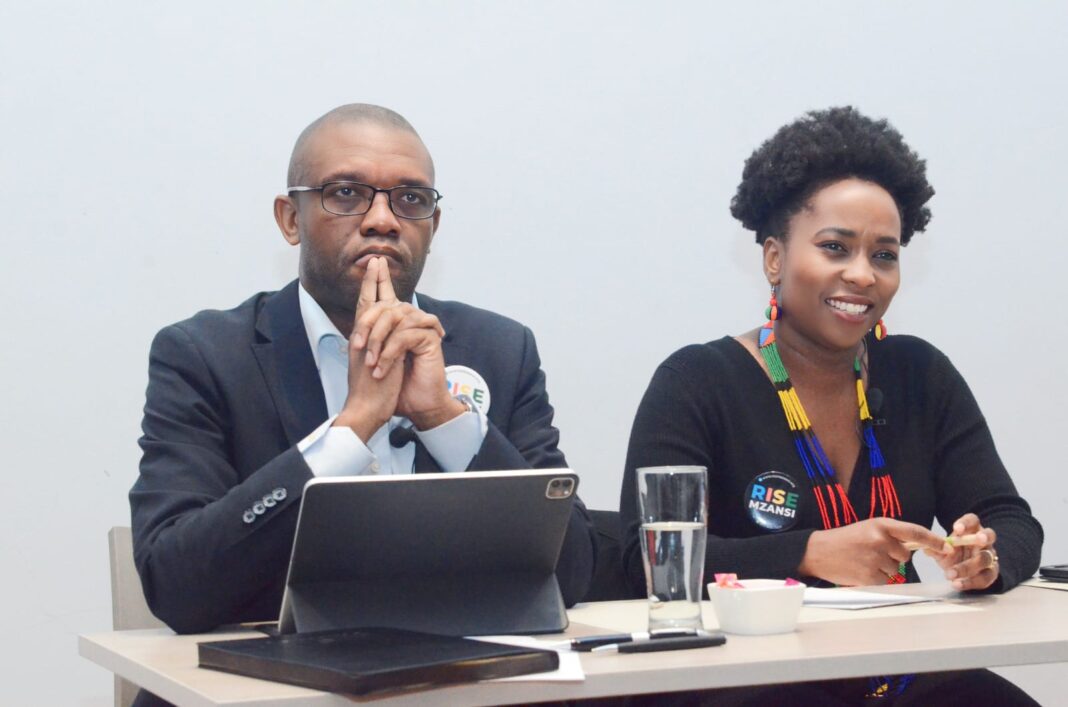By Thapelo Molefe
Eskom’s financial mismanagement and governance failures once again came under scrutiny as the Standing Committee on Public Accounts was briefed by the Auditor-General on Tuesday on its audit outcomes for the 2023/24 financial year.
The audit revealed persistent weaknesses, leading to Eskom receiving a qualified audit opinion with findings, a trend that has continued for several years.
Eskom’s financial statements for the period ending March 2024 were found to contain material misstatements, particularly in areas such as irregular expenditure, fruitless and wasteful expenditure, and losses due to criminal conduct.
The audit highlighted that these deficiencies remain largely unaddressed by Eskom’s leadership, despite repeated commitments to improve internal controls.
The report revealed that irregular expenditure stood at R4.15 billion, a decrease from R5.93 billion in 2022/23, yet still a significant amount. Fruitless and wasteful expenditure was recorded at R1 million, showing a notable reduction from the R43 million reported in the previous year.
However, losses due to criminal conduct increased to R6.72 billion, up from R6.03 billion in 2022/23, highlighting ongoing concerns about financial mismanagement and accountability within Eskom.
The Auditor-General’s office raised concerns over Eskom’s ineffective oversight and failure to implement consequence management against officials responsible for these financial irregularities.
During the meeting, committee chairperson Songezo Zibi, questioned AGSA representatives on the utility’s persistent governance failures and the slow implementation of corrective measures.
“Are they taking action against the concerns? Are we not happy with the actions that they are taking? Otherwise, we inadvertently might cause instability as well,” Zibi emphasised.
A Deloitte executive, who assisted AGSA in conducting the audit, highlighted the leadership instability at Eskom during the audit period, stating: “We had quite a few individuals who were in acting roles, and we keep on saying that decisions are not taken necessarily when people are in acting roles.”
However, he said with the appointment of a new CEO and chairman in March 2024, there was hope for strengthened accountability.
The committee expressed frustration at Eskom’s recurring failures, with some questioning whether real-time audits should be introduced, particularly given the conditions attached to Eskom’s funding from the National Treasury.
“What are the possibilities of a real-time audit?” one member asked.
In response to Scopa’s concerns about accountability, AGSA officials discussed the feasibility of implementing the real-time audits. They explained that while Eskom undergoes annual audits, a half-year review or quarterly status checks could provide more immediate oversight.
“We do go in on a quarterly basis and assess some of the areas that we would have highlighted as concerns when we concluded the audit.”
The committee strongly supported the idea, arguing that real-time audits would help prevent recurring financial mismanagement and ensure that funds allocated to Eskom are used efficiently.
However, Eskom’s board would have to be consulted.
One of the pressing issues discussed was Eskom’s rising municipal debt, which has now reached R86 billion.
Committee members questioned why Eskom continued supplying electricity to municipalities that consistently failed to pay.
“There is a proposal that Eskom has that would assist in terms of revenue collection and ameliorating their financial situation, but also freeing municipalities of the current burden,” Zibi noted.
Additionally, concerns were raised about Eskom’s approach to tariff increases as a means of addressing financial instability. Some members argued that escalating electricity prices were pushing consumers to alternative energy sources, further undermining Eskom’s revenue base.
“Electricity is skyrocketing in terms of prices. People cannot afford it. What becomes your contribution and advice to Eskom when they are dealing with the issue of these prices?” a committee member asked.
An AGSA official highlighted concerns about regulatory oversight, specifically pointing to the National Energy Regulator of South Africa (Nersa).
“Nersa is empowered to grant licences to energy service providers, including municipalities, and there are conditions to those licences. One of the conditions is that they must pay Eskom. The question is, what does Nersa do when there are municipalities that are defaulting?” the official stated.
Zibi also updated the committee on Eskom’s proposed solution to address its municipal debt crisis.
“Eskom has suggested writing off the current municipal debt on condition that they are allowed to do the collection themselves on a prepaid basis.”
Committee members expressed interest in evaluating this proposal further, emphasising the need for sustainable financial solutions rather than temporary fixes.
Zibi also raised concerns about the treatment of suppliers previously involved in malfeasance, questioning why Treasury has not blacklisted them.
“This is a question I’ve asked both the Minister of Electricity and the Minister of Finance. We must get to a point where there is a clear and consistent set of rules around how we deal with companies that are involved in corruption.”
He also stressed the importance of evaluating Eskom’s leadership fairly, acknowledging that new boards and executives should not be blamed for inherited problems.
“You don’t want a board that has been in place less than a year to be fired because of what they also found in that period.”
AGSA officials advised that to bridge the accountability gap, Eskom’s board and audit committee should provide Scopa with detailed progress reports on corrective measures taken post-year end.
They emphasised the need for a robust audit action plan that prioritised strengthening internal controls to prevent irregular and wasteful expenditure, holding officials accountable through strict consequence management, and addressing systemic failures in maintenance contracts and power plant operations.
Additionally, they highlighted the importance of implementing effective revenue collection strategies to mitigate the growing municipal debt crisis and enhancing regulatory enforcement to ensure municipalities complied with payment obligations.
While Eskom’s leadership transition offers a potential opportunity for change, the latest audit findings underscore the need for decisive action to prevent further financial and operational decline.
INSIDE POLITICS

